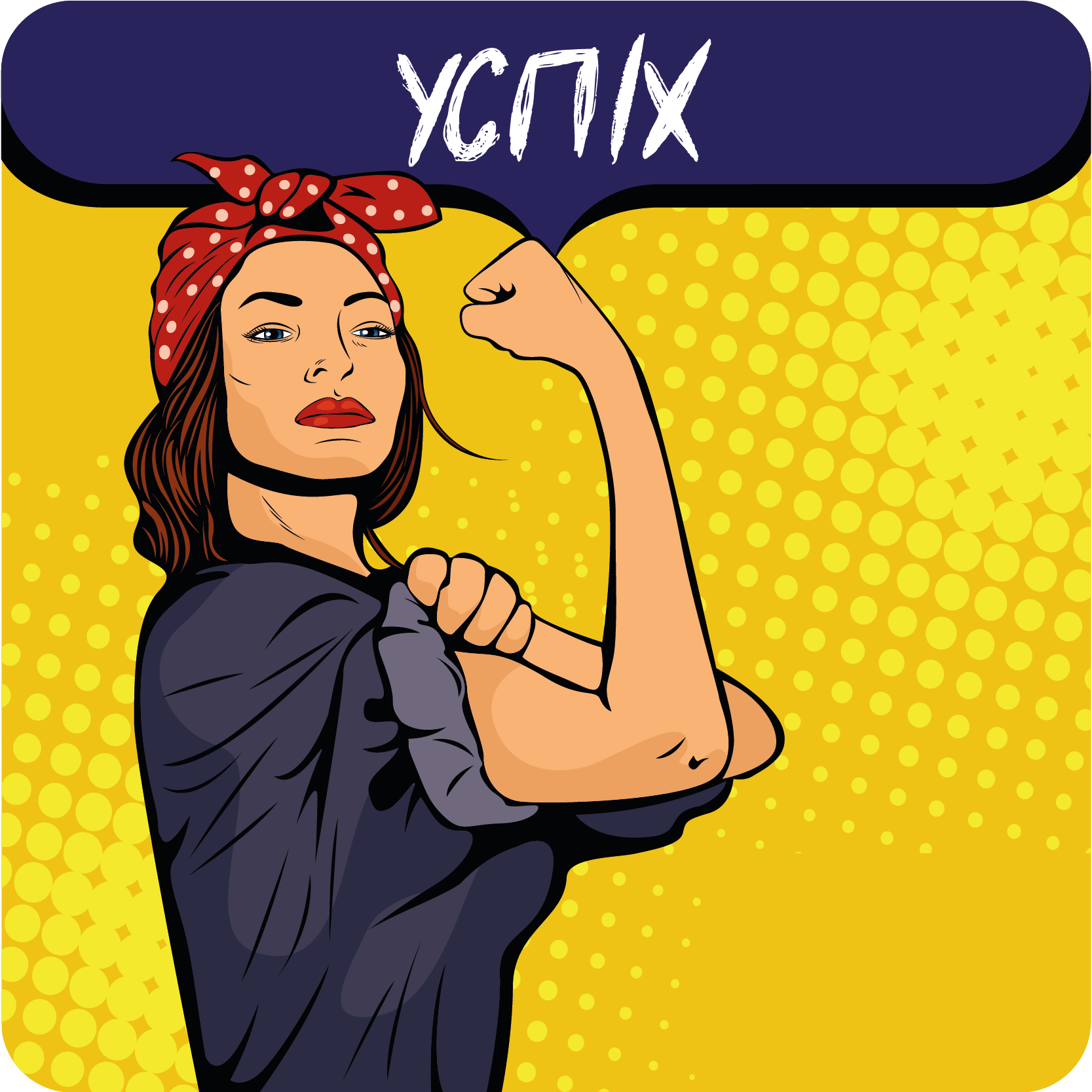


Малі гранти на адвокаційні проекти
05.02.2018
Counterpart International приймає заявки від активістів, організацій та фірм на отримання грантів на реалізацію адвокаційних проектів, що орієнтовані на впровадження підходів, базованих на правах людини, а також інтернет-урядування. Дедлайн - 28 лютого 2018 року (далі - англ.).
Більше грантів у розділі Гранти
The Internet Governance/Internet Freedom program is a multi-year program funded by the United States Agency for International Development (USAID) and implemented by Counterpart International (CPI). CPI’s internet governance/internet freedom project intends to provide civil society actors with advocacy tools and resources to advance a multi stakeholder human rightsbased approach to internet governance in four key countries. The project will support civil society actors advocating in closing internet space where free expression, independent media, privacy, data security, and transparent access to information are contested or at risk. The project’s overall approach will identify gaps in research, knowledge, capacity building, the multi stakeholder governance model, resources, and other obstacles facing civil society advancing a rights-based advocacy and policy approach to internet governance. Note that internet governance is separate and distinct from “e-governance” which is largely focused on the use of ICT for improved government service delivery, and only tangentially related to the scope of this proposal.
Program Objectives:
• Building advocacy capacity for civil society actors to advance a rights-based approach to internet governance policies
• Support evidenced based white paper research on public policy ecosystems, internet measurements/access, and stakeholder inclusiveness, particularly for marginalized communities.
• Support civil society participation at international fora including the Internet Governance Forum (IGF) and RightsCon.
Objectives, Approaches and Illustrative Activities: Small Advocacy Grants will primarily focus on activities that foster a human rights-based approach to internet governance in selected countries (Sri Lanka, Ukraine, Venezuela, and Zimbabwe), ensuring that polices governing the internet conform to international standards on fundamental human rights including freedom of expression, access to information, and privacy, among others.
Policy and Advocacy – National, and international policy and advocacy efforts that empower civil society to counter restrictive internet laws; support policies to promote a free and open internet in targeted countries where the government has adopted, or is considering adopting, laws or policies that restrict human rights online. Projects may include, but are not limited to:
• Local capacity-building programs to support the development of non-U.S. based civil society organizations to advocate for human rights online, e.g. advocacy training; expanding the circle of actors within the online rights advocacy community through increased outreach, greater literacy around online rights issues; activities which strengthen multi stakeholder coalition networks to coordinate and address internet governance issues; human rights sensitization training workshops for government and legal officials with authority over internet governance policy; raising awareness and understanding among journalists and the media of online rights and how to effectively cover them in the press
• Advocacy campaigns around national online rights using media tools, platforms, and outlets to raise public awareness, and engage and educate policy decision makers and impacted constituencies.
• Creating advocacy resources and tools which can be used by stakeholders for sustainable educational and advocacy initiatives.
• International engagement opportunities to increase civil society participation in international policy dialogues to support multi stakeholder engagement and promote internet freedom at key international fora.
• Advocacy activities that incorporates and amplify the voices of marginalized communities in internet governance public policy discussions, e.g. LGBTI community, women/girls, religious minorities, youth, the physically disabled, and labor activists, among others.
• Hosting of national Internet Governance Forum (IGF), Women’s IGF, and/or Youth IGF which promote broad multistakeholder participation in national internet governance discussions.
Award information:
Subject to the availability of funds, CPI expects to award small advocacy grants, ranging from $2,000 to $24,999USD. The total amount available is $100,000 for advocacy grants CPI reserves the right to fund any or none of the application submitted.
Eligibility:
The applicant / application must meet the following requirements
• Be officially registered and working in compliance with all applicable civil and fiscal regulations, including, but not limited to pertinent local laws and status. In lieu of official registration, a grantee may show proof of effort to secure registration, exemption from registration, or show cause why such registration is either not optional or practicable
• Meet the projects objectives and principles
• Contain expected outcomes and results consistent with and linked to the projects objectives
• Applicant is not a debarred organization
Types of Grantees Eligible:
• Non-US Nongovernment Organizations (Non-US NGOs)
• International Non-Governmental Organizations (INGOs)
• Community Based Organization (CBOs)
• Civil Society Organizations (CSOs)
• Private Enterprises
• Professional Associations
• Universities
1. Applications are requested from organizations registered in the selected countries (Sri Lanka, Ukraine, Venezuela, and Zimbabwe). Examples include those representing a professional association, non-profit organization, non-governmental organization, union, media organization, professional association, private company such as an LLC, or partnership of such entities.
2. Applicant is not a debarred organization. Applicants must ensure that the names associated with the applicant entity (organization, and its principals, as applicable) are not listed as excluded parties on these public lists, including OFAC’s Specially Designated Nationals (SDN) List (https://sanctionssearch.ofac.treas.gov/) and exclusion records from EPLS (www.sam.gov).
3. The proposal must comply with the guidelines and directions described in this RFA and the application. Proposals that do not comply with the guidelines described in this RFA will not be considered.
4. The complete application contains electronic versions of all necessary documents (the application form and detailed budget/budget notes).
Application and submission information:
Any questions concerning this RFA should be submitted in writing no later than February 15, 2018 to [email protected]. Responses to questions will be made available to all applicants via email. Applicants should retain for their records one copy of all enclosures which accompany their application.
budget with budget notes in Microsoft Excel identifying how grant funds will be allocated for the project, including proposal level of effort of any staff who will be working this grant. All costs must be justified in the budget narrative. Profit or fee is not an allowable cost and may not be included in your proposed budget.
Pre-Agreement Costs: Counterpart International will not reimburse costs incurred prior to the effective date of the award.
Documents to Attach as Part of the Application
1. Copy of Registration Certificate
2. Copy of Organization’s Charter or Document of Incorporation or Organization’s by laws
3. Organization’s most recent annual financial statement and audit report for the past year.
4. Organizational chart outlining the staffing structure by name and title and showing the number of staff employed, if available.
Submission Guidelines and Instructions
• All applicants must submit their final proposals, budgetary information as well as any other relevant enclosures directly responsive to the terms, conditions, specifications and requirements of this RFA as follows: Email the completed application (including attachments) with the subject line “CPI Project RFA #17-1 (Country)” to [email protected]. Applications and all communications regarding grants should be submitted by email to [email protected]. Public key for encrypted communications can be found here on the MIT server.
• Completed applications must be in English. The narrative part should be single spaced and limited to ten (10) pages in total (budget and budget notes not inclusive). Please use font type “Calibri,” font size 11, page margins of 1” per side.
• Applicants may form partnerships, in which case only one entity may be the lead applicant.
• Applicants are solely responsible for all expenses associated with responding to this opportunity.
• Proposals that do not comply with the guidelines described in this RFA will not be considered. At Counterpart’s discretion, any application received after the exact date and time specified as the deadline for submissions may be considered ineligible for consideration.
• Applications and accompanying documentation will not be returned.
Контакти
- Counterpart Internatoional
- [email protected]
- https://www.counterpart.org/
- https://www.facebook.com/counterpartinternational
- 2345 Crystal Dr Ste 301 Arlington Virginia








Коментарі